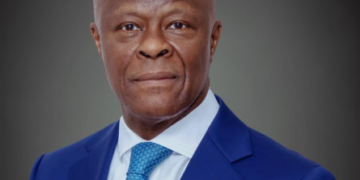The Bank of Ghana (BoG) Governor, Dr. Ernest Addison, has announced plans to reverse the foreign exchange (FX) control measures that were implemented last year in response to declining reserves.
These measures involved withdrawing foreign exchange support for the importation of certain non-critical goods. The central bank now intends to establish a unified FX market.
The decision to nullify the measures comes after the approval of a 36-month arrangement under the International Monetary Fund’s (IMF) Extended Credit Facility. The BoG is committed to implementing necessary actions and reforms to ensure a unified exchange rate market.
READ ALSO: Bank of Ghana launches State-of-the-Art Cyber-security Command Center
In a press briefing following the 112th meeting of the Monetary Policy Committee, Dr. Addison explained that the foreign exchange control measures were implemented as crisis management steps due to the challenging environment in 2022.
However, as the situation normalizes and reserves improve, the central bank does not anticipate continuing with these restrictions. Gross reserves experienced a slight increase in April, reaching US$5.2 billion, and continued to rise to US$5.7 billion by May 19.
Despite this progress, the figure falls short of the IMF’s recommended threshold of three months of import cover. The Bank of Ghana aims to collaborate with the IMF to achieve a unified FX market and enhance transparency, efficiency, and price discovery within the market to support economic growth and investor confidence.
The reversal of foreign exchange control measures by the Bank of Ghana represents a significant step toward economic recovery and the establishment of a unified foreign exchange market. As the country focuses on stabilizing reserves and implementing necessary reforms, the impact of these changes on the Ghanaian economy will be closely monitored by stakeholders.






























































